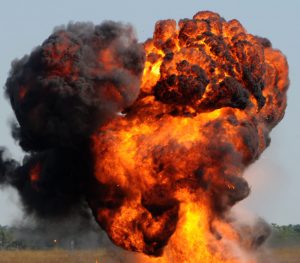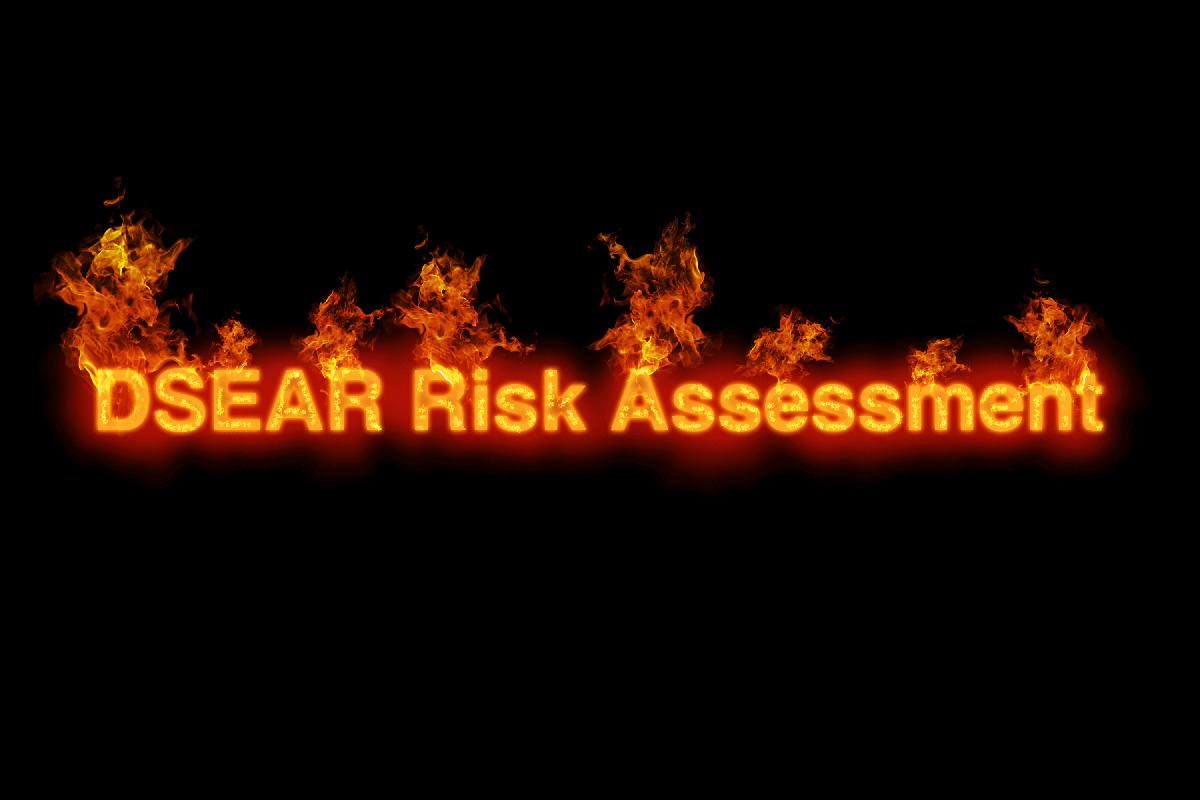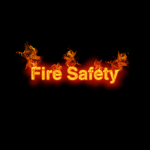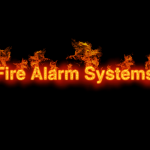DSEAR stands for the Dangerous Substances and Explosive Atmospheres Regulations 2002. This is a set of regulations that are designed to ensure the safety of employees in environments where there might be dangerous substances or explosive atmospheres which could cause injury, illness, or death.
DSEAR applies to all types of workplaces including agriculture, construction, manufacturing, and transport.
DSEAR (Dangerous Substances and Explosive Atmospheres Regulations) came into effect on 9th December 2002.
Contents
What is DSEAR?
The purpose of DSEAR is to prevent accidents and injuries by ensuring that employers take the necessary precautions to protect their employees from the risks posed by dangerous substances and explosive atmospheres.
 DSEAR sets out specific requirements for the safe handling, storage, and use of dangerous substances. It also requires employers to carry out risk assessments to identify any potential dangers and put in place measures to control those risks.
DSEAR sets out specific requirements for the safe handling, storage, and use of dangerous substances. It also requires employers to carry out risk assessments to identify any potential dangers and put in place measures to control those risks.
DSEAR is an important piece of legislation that helps keep employees safe in their workplaces. If you are working with or around any type of dangerous substance or explosive atmosphere, it is important to familiarise yourself with DSEAR and ensure that your workplace is compliant with its requirements.
What are dangerous substances?
DSEAR defines a dangerous substance as any solid, liquid, or gas that has the potential to cause harm. DSEAR refers to particular types of substances which are considered particularly hazardous and can injure employees with just one exposure.
These include:
- Explosives
- Flammable dust
- Flammable gases
- Organic peroxides
DSEAR requires employers who handle these substances in their workplaces, whether they be retailers, manufacturers, distributors, importers/exporters, etc., to assess how it is being handled and managed to prevent an accident from occurring.
Specific requirements depend on what type of activity is being carried out by the business where there is exposure risk from explosive atmospheres created when these dangerous substances are present.
If you work with any of the substances listed above, it is important to be aware of DSEAR and make sure your workplace is compliant with its requirements. If you’re not sure whether your workplace meets these regulations, contact an expert who can help guide you in the right direction.
What are DSEAR risk assessments?
DSEAR risk assessments are a key part of ensuring your workplace is safe from the dangers of explosive atmospheres. By identifying any potential risks and taking steps to mitigate them, you can ensure that your workers are protected from harm.
DSEAR risk assessments should be carried out by a competent person and should take into account all aspects of your workplace including:
- The type of work being carried out
- The location of the work
- The materials and substances being used
- How those materials and substances are stored, handled, and used
What does DSEAR stand for?
DSEAR stands for the Dangerous Substances and Explosive Atmospheres Regulations 2002. This is a set of regulations that are designed to ensure the safety of employees in environments where there might be dangerous substances or explosive atmospheres which could cause injury, illness, or death.
What does DSEAR require of employers?
DSEAR requires employers to take specific precautions to protect their employees from the risks posed by dangerous substances and explosive atmospheres. This includes carrying out risk assessments, putting in place measures to control any identified risks, and ensuring that workers are familiar with DSEAR and its requirements.
Why is compliance is important?
 Employers who are not compliant with DSEAR can face significant fines and even imprisonment. It is therefore essential that all employers take the necessary steps to ensure their workplaces comply with these regulations.
Employers who are not compliant with DSEAR can face significant fines and even imprisonment. It is therefore essential that all employers take the necessary steps to ensure their workplaces comply with these regulations.
If you’re not sure whether your workplace meets DSEAR requirements, or if you need help getting started with a risk assessment, contact an expert for guidance.
Ways to stay compliant with DSEAR regulations and legislation
DSEAR regulations and legislation can be complex, so it’s important to have a clear understanding of what’s required of your workplace. By familiarising yourself with DSEAR and taking the necessary steps to ensure compliance, you can help protect your employees from harm.
If you’re not sure whether your workplace meets DSEAR requirements, or if you need help getting started with a risk assessment, contact an expert for guidance.
Compliance with DSEAR regulations is essential for protecting employees from harm, so make sure your business doing everything it can to stay safe!
DSEAR FAQ
How can DSEAR help me?
DSEAR is the legal requirement that protects people who work with dangerous substances and explosive atmospheres. DSEAR contains very specific safety requirements which you must follow to ensure your workplace stays safe for everyone involved.
DSEAR also applies if there are risks of explosion within an atmosphere even when no hazardous substance is present, such as in some manufacturing processes.
What are the benefits of DSEAR?
DSEAR can help you to protect your workers, and ensure that your workplace is safe for everyone. DSEAR also helps to prevent explosions, which can cause extensive damage and loss of life.
Who does DSEAR apply to?
DSEAR applies to anyone who works with a dangerous substance in an explosive atmosphere. This includes employees, employers, self-employed people, and contractors.
What is an explosive atmosphere?
An explosive atmosphere is created when a flammable gas, vapour, or dust mixes with air so that the mixture has the potential to ignite.
What is DSEAR abbreviation for?
DSEAR is the Dangerous Substances and Explosive Atmospheres Regulations 2002. DSEAR was made under The Health & Safety at Work etc Act 1974.
What is the purpose of DSEAR?
The purpose of DSEAR is to protect people who work with dangerous substances and explosive atmospheres. This includes employees, employers, self-employed people and contractors. DSEAR also applies if there are risks of explosion within an atmosphere even when no hazardous substances is present, such as in some manufacturing processes. DSEAR encourages employers to identify and control the risk from dangerous substances or explosive atmospheres.
What does DSEAR mean by “explosives”?
DSEAR classifies an explosive as a substance that can cause an explosion due to its chemical composition, even if the mixture is not detonated by heat, spark, or flame. This includes gases, vapours, and dusts.
Conclusion
In this article, we’ve looked at DSEAR – Dangerous Substances and Explosive Atmospheres Regulations. We’ve explored what DSEAR is, what it requires of employers and the importance of compliance.
If you’re not sure whether your workplace meets DSEAR requirements, or if you need help getting started with a risk assessment, please contact us for further information.




